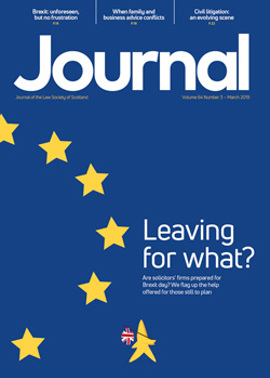Is your legal software ready to remain compliant in 2019?
The legal software market is amidst a period of change and consolidation. Previously, most suppliers tended to be owner-managed businesses. However, today’s landscape is very different, with a good number being bought up by venture capitalist-backed businesses looking to consolidate the market and drive product development. This focus on a dramatically reduced number of “go-forward” products has created threats to existing solutions in use across many firms.
Making Tax Digital
More change is increasing the pressure on firms to digitise. For example, HMRC’s Making Tax Digital (MTD) initiative launches on 1 April 2019 and is set to make fundamental changes to the tax system.
MTD will require firms to record and report their VAT transactions digitally. Firms must have suitable software in place that is capable of recording all VAT transactions and submitting the data to HMRC via a new Application Programming Interface.
With paper only records no longer acceptable, firms should check the status of their systems, ensuring they have the controls to maintain an efficient and compliant operation.
Staying compliant
With products already in use by firms possibly no longer being supported, firms that don’t ask questions of their providers risk breaching legislation or incurring higher fees.
For example, an existing supplier could request that they change to an alternative system, at a large expense to the business. Keeping their existing system could mean they simply won’t be compliant from the moment any new legislation takes effect, or are forced to buy expensive “add on” products which have a limited lifespan and are cumbersome to implement and use.
The process of implementing and migrating data to another system could also be overlooked. Data migration takes considerable time and resources to make sure it’s done right. Leaving this close to regulatory deadlines, or incomplete before systems cease, could force firms to accept high renewal or migration fees, or even a lengthy agreement on a solution they aren’t fully satisfied with.
Taking active precautions, such as asking suppliers about the state of existing software or seeking advice from legal IT experts, will help firm managers to make early decisions about the best course of action when faced with potentially outdated or non-compliant products. Taking these steps now could help firms to reap the benefits of providers which offer fast migration with full support and expertise, giving their practice maximum compliance and longevity and allowing them to thrive in an increasingly digital sector.
In this issue
- How will Brexit affect my mother-in-law?
- Settling the debate on sequestration
- Taking wellbeing seriously
- How will personal data continue to flow after Brexit?
- Buildmark, and a little extra help for NHBC
- Reading for pleasure
- Opinion: Laurie Anderson
- Book reviews
- Profile: Lord Mackay of Clashfern
- President's column
- People on the move
- Is your legal software ready to remain compliant in 2019?
- What's the deal?
- Ready to leave?
- A tapering opportunity
- Brexit: no dealbreaker either
- The business of divorce
- Trailblazing 12
- Cohabitants: rebalancing the law
- Litigation: an evolving scene
- Chain transactions
- When delay is not fatal
- Data protection – deal or no-deal?
- Two cases and an order
- Reshaping trade mark law
- When the wheels come off
- Parentage or privacy?
- Access right, right of access or right of way?
- Team of one
- Public policy highlights
- OPG update
- Housing specialism added to accreditation list
- At the boundary's edge
- Keep the dual role
- Executry and trust accounting: new guidance
- Moving nightmares
- Accredited paralegal update
- Sign up for conference
- Accredited Paralegal Committee profile
- Ask Ash






